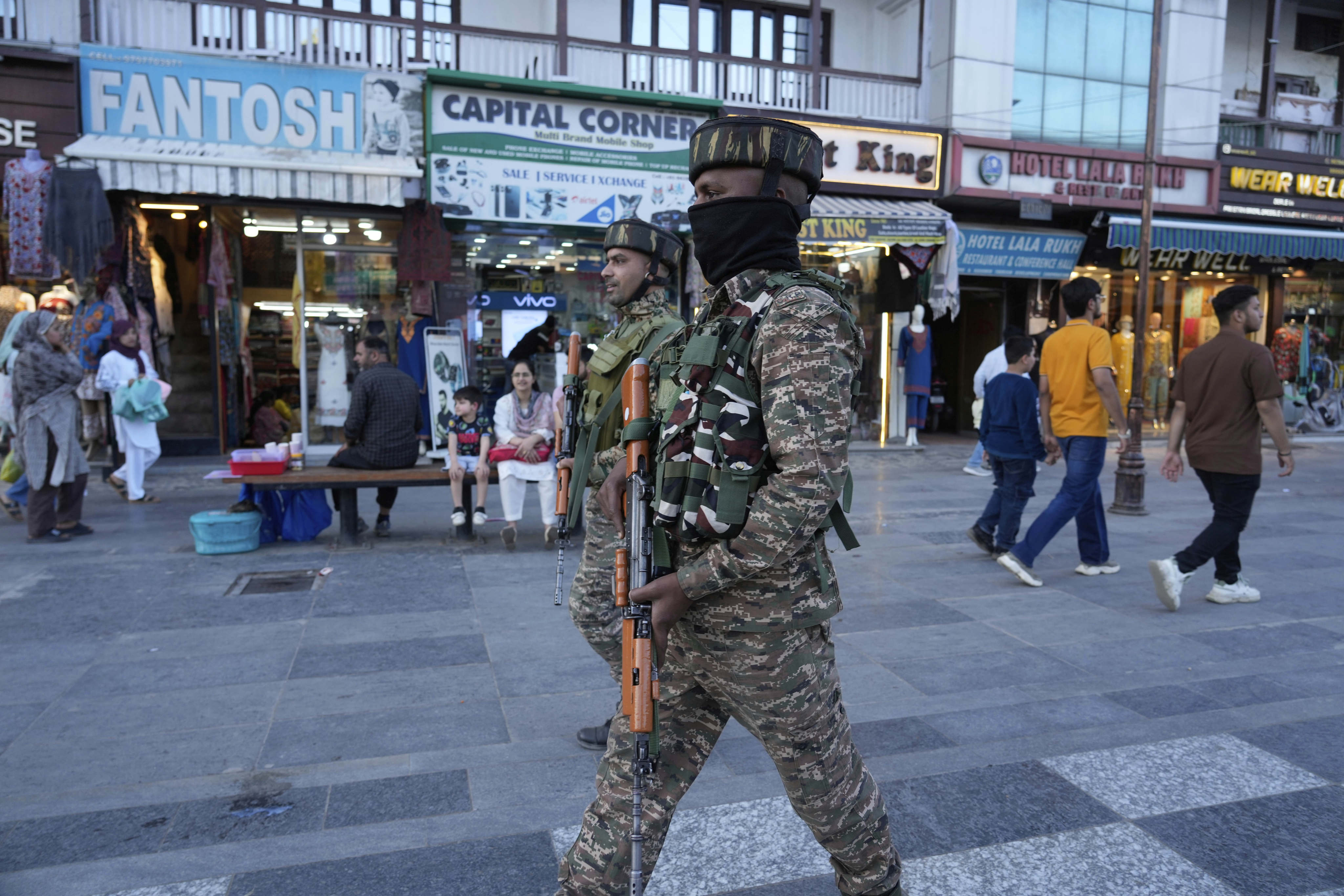US tells India and Pakistan to tone down Kashmir tensions, avoid military clash
US Secretary of State Rubio asked both sides to ‘maintain peace’ in South Asia and told Pakistani leader Sharif to condemn the attack

The US urged India and Pakistan to work together to de-escalate tensions and avoid an expected clash, after militants last week killed dozens of people in the Indian-controlled portion of the disputed Himalayan region of Kashmir.
US Secretary of State Marco Rubio spoke with top officials from both countries on Wednesday, asking them to “maintain peace and security in South Asia”.
He told Pakistan’s Prime Minister, Shehbaz Sharif, of the need to condemn the attack and re-establish direct communications, according to a statement from the State Department. Rubio also spoke with India’s External Affairs Minister Subrahmanyam Jaishankar.
Relations between the nuclear-armed nations and long-time adversaries have rapidly deteriorated in the wake of the attack, which India and the US have called an act of terrorism.
Indian Prime Minister Narendra Modi’s government has accused Pakistan of involvement and vowed to punish those responsible. Pakistan has denied any links to the assault and warned of retaliation if India takes military action.
In a televised address shortly after midnight on Wednesday, Pakistani Information Minister Attaullah Tarar said his country had “credible intelligence” that India would carry out military action in the next 24 to 36 hours. Hours later at a news conference, Pakistan’s military spokesman, Lieutenant General Ahmed Sharif Chaudhry, said the country’s response to any Indian aggression will be “befitting and decisive”.
Deputy Prime Minister Ishaq Dar, speaking at a join briefing with Chaudhry, reiterated that Pakistan had “nothing” to do with the attack and demanded an “independent and transparent investigation by the neutral investigators”.
“Pakistan will not be the first one to resort to any escalatory move,” Dar added. “In case of any escalatory move by the Indian side, we will respond very strongly,” he added.
Modi gave India’s armed forces a free hand to decide on the timing, targets and mode of responding to the assault in a meeting that included Defence Minister Rajnath Singh and National Security Adviser Ajit Doval, The Economic Times reported on Tuesday, citing people it did not identify. Modi’s office did not immediately respond to an email sent after normal business hours seeking details of the meeting.
Pakistan’s assets have taken a hit this month, with stocks and dollar bonds set for their worst monthly performance in two years. Dollar bonds have handed investors a loss of nearly 4 per cent this month, while stocks are down almost 3 per cent. The escalating tensions come at a time when the nation’s economy is fragile and dependent on the International Monetary Fund’s funding for support.
At the same time, Indian assets are proving relatively immune for now with stocks and local bonds up this month.
Pakistan’s army on Tuesday shot down an Indian spy drone that breached The Line of Control in Kashmir, a northern region claimed by both countries, according to Pakistan’s state-run television channel. Both sides have shot down small drones in the past as they are often used for surveillance around the border.
On Wednesday, India’s army accused Pakistan of firing across The Line of Control for a sixth consecutive day, saying its forces responded “swiftly” and “proportionately” to what it described as “unprovoked small arms fire”.
The ceasefire agreement signed by the two countries in 2003 was frequently violated until 2021, when they renewed their commitment to uphold the truce. Cross-border firing had largely ceased since then.
India imposed punitive measures in the wake of the April 22 attack, including the downgrading of diplomatic ties and suspending a crucial water-sharing treaty. Pakistan retaliated by expelling Indian diplomats from Islamabad, closing its airspace to Indian-owned and Indian-operated airlines, and suspending the limited trade between the nations.
Military officials from India and Pakistan spoke over a direct telephone line on Tuesday to discuss recent ceasefire violations. This is a regular weekly call and does not necessarily indicate tensions are easing, but it shows that some official communication channels are still functioning.
Pakistani Defence Minister Khawaja Muhammad Asif this week warned of the threat of war but said it could be averted. He added that China, Saudi Arabia and other Gulf states were trying to head off conflict.
Pakistan’s military spokesman Chaudhry said earlier that India had not provided a “shred of evidence” to support its “baseless allegations” linking Islamabad to the Kashmir assault.
The two neighbours have long accused each other of sponsoring cross-border terrorism, a major obstacle in normalising their relations and resolving the Kashmir dispute through dialogue.
Since achieving independence from Britain in 1947, India and Pakistan have clashed several times over the disputed territory.
The most recent prolonged fighting occurred in 1999, when Pakistani troops infiltrated Kargil, an Indian-controlled district in Kashmir. That lasted for several months until the Pakistani forces withdrew from locations on The Line of Control, the de facto border.
The last time the two sides came close to an all-out war was in 2019, when a suicide bomber killed 40 members of India’s security forces. Jaish-e-Mohammed (Soldiers of Mohammed), a Pakistan-based jihadi group, claimed responsibility, prompting India to respond about two weeks later with its first air strikes on Pakistani soil since 1971.